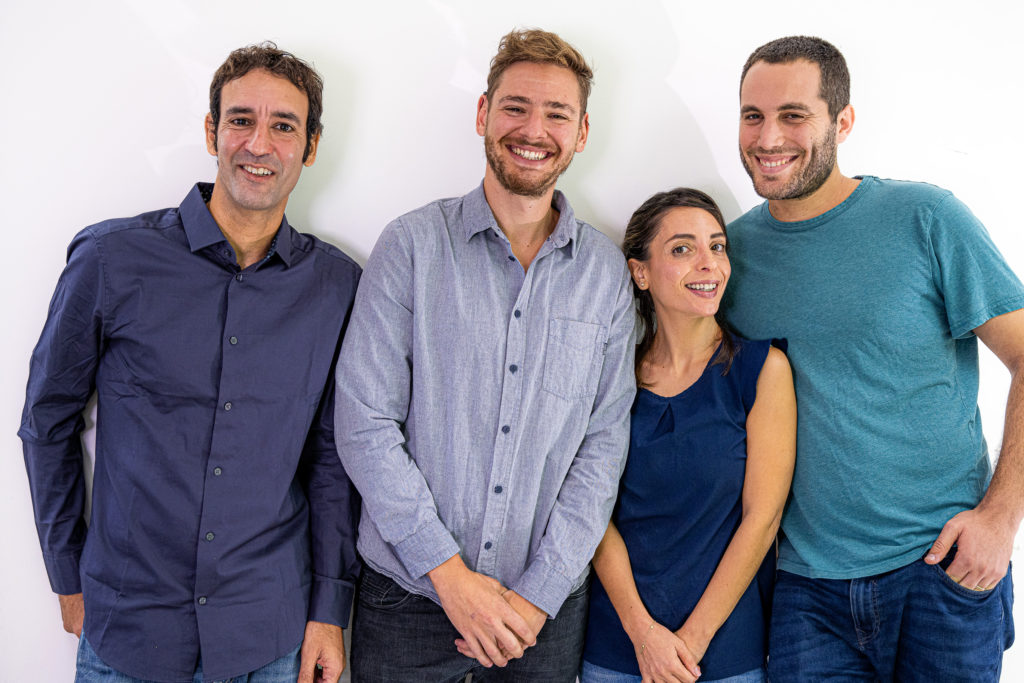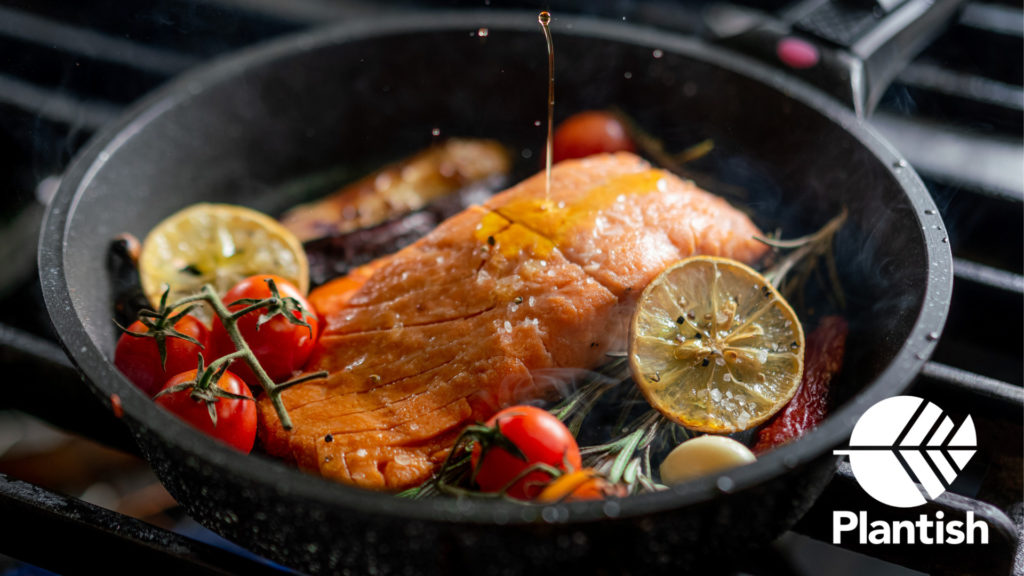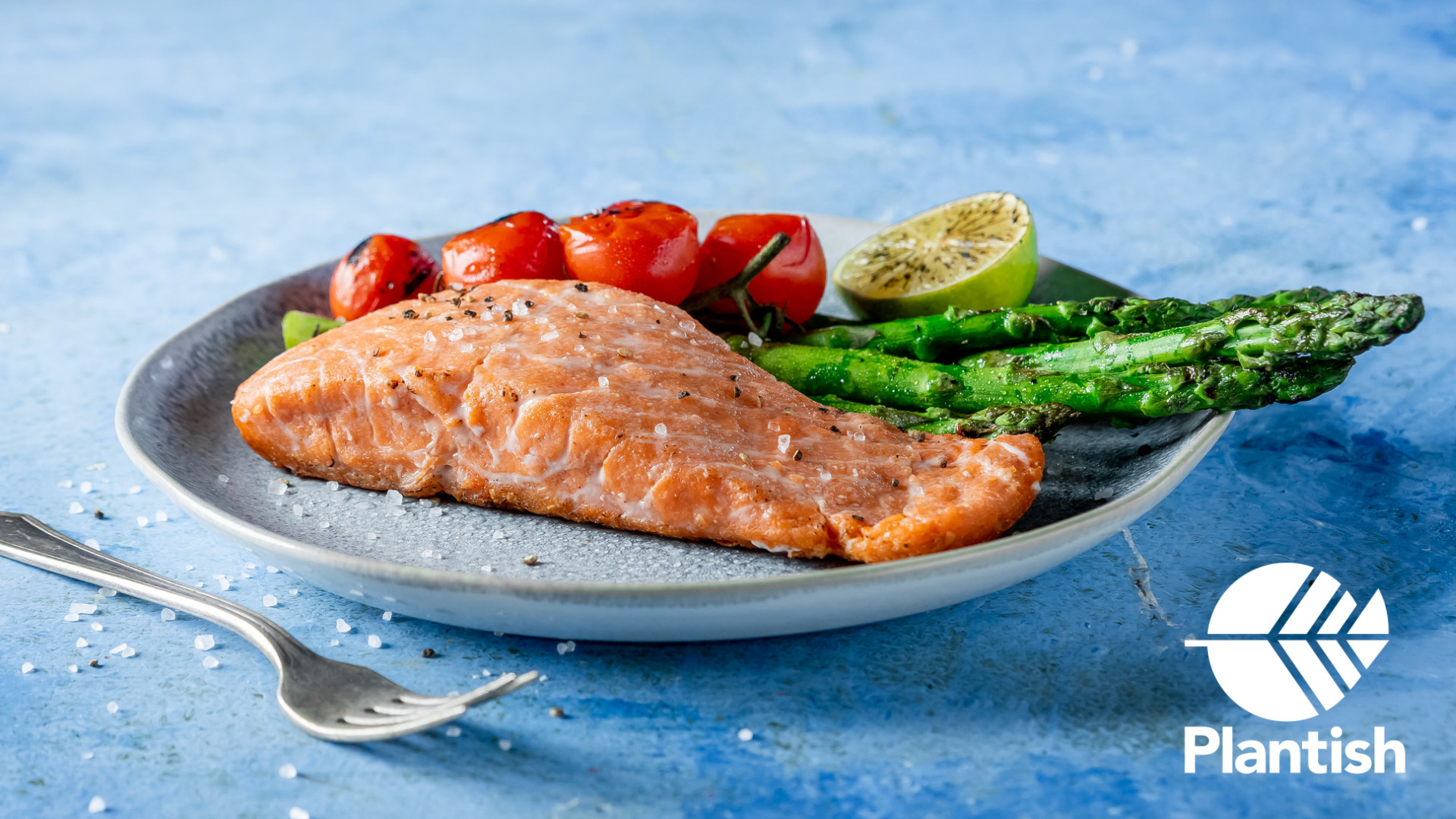Israeli foodtech startup Plantish is ready to reveal its first product prototype. The company has developed a 100 percent plant-based salmon fillet that replicates every aspect of conventional fish. The successful development is a result of proprietary patent-pending manufacturing technology. Products will eventually be available for manufacturing on a large scale but at low cost to the consumer.
Plantish made itself known in early 2021 after it completed a successful re-seed funding round, scooping $2 million from TechAviv Founder Partners, then went to develop its prototype. The company has been founded on ethical principles of saving the oceans and offering nutritious alternatives to fish.

Israel’s best-kept secret
Despite entering the alternative protein race, Plantish has remained protective of its developments. Little has been released or uncovered until now. The unveiling of Plantish Salmon represents the dawning of a public-facing version of the company. The product itself has the same nutritional value as regular salmon, including protein, omega fats, and B vitamins. It negates bones, but has a tangible structure and looks like real salmon. It contains none of the toxins that are frequently identified in regular fillets though—mercury, microplastics, hormones, and antibiotics included.
“Our vision is to be the world’s leading seafood brand,” co-founder and CEO Ofek Ron said in a company statement, “all without hurting a single fish.”
With many plant-based seafood alternatives favouring a minced appearance, capturing the whole-cut element of salmon helps Plantish to stand out. It addresses consumer demand. The company claims 80 percent of fish eaten are done so in the form of whole animals or fillets. The structure and scalability of the product proved to be complex focal points. The fish is made from legume proteins and algae extracts and is 3D printed.
“Using the right plant proteins to achieve the fibrous strands meant to replicate the complex texture of animal muscle is the key to succeeding in capturing the experience of eating salmon, and doing so at scale will make it a suitable substitute for foodservice, restaurants, and retail,” the company revealed in a statement.
The salmon prototype can be cooked identically to conventional salmon. The fIrst consumer interactions are slated for late 2022, at a number of pop-up events. Full commercial launch is currently planned for 2024.

A fish-free future
Alongside Plantish, a host of companies are seeking to take fish out of the food system equation. 100 percent plant-based seafood alternatives are undeniably on the rise. IMARC Group reported that between 2017-2020, the alternative seafood market saw growth of 30 percent. This is predicted to continue in line with rising interest in veganism.
Earlier this week, the UK’s Sozyë unveiled its range of fish-free sauces. The Soya, oyster and fish sauce alternatives rely on sustainably harvested Scottish seaweed. Flavours are replicated without any animals being harmed and no ecosystems suffering.
Hong Kong’s OmniFoods is increasing its reach with OmniSeafood. Last week it announced that the Green Monday-owned brand partnered with Starbucks Hong Kong to release a plant-based fish fillet sandwich. It comes after the success of the duo’s Thai Style OmniFoods Crab Cake salad in 2021.
It’s not only Asia that is benefitting from OmniSeafood, as Wagamama U.K. just launched a new faux fish and chips dish, powered by OmniFoods ‘fish’.
All images courtesy of Plantish.



